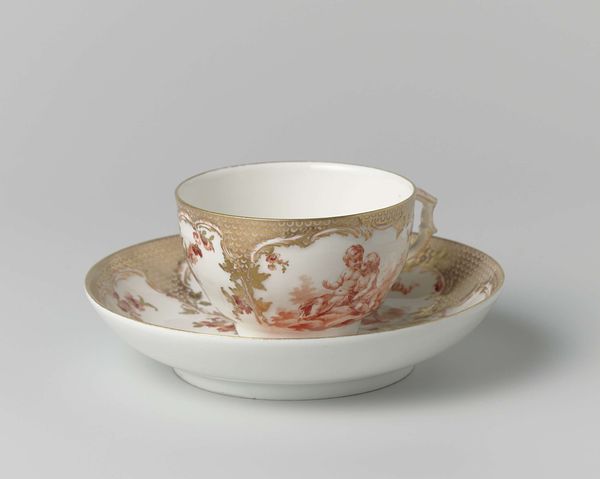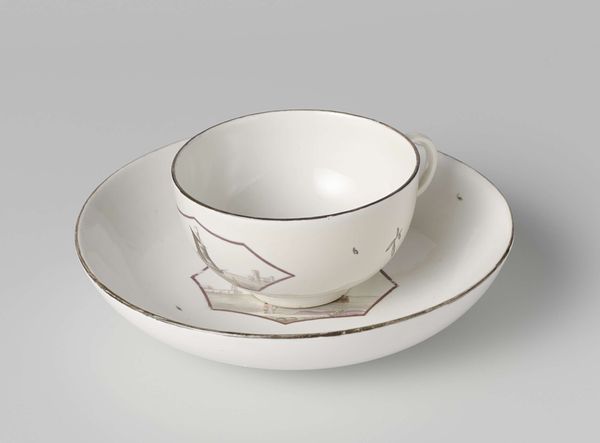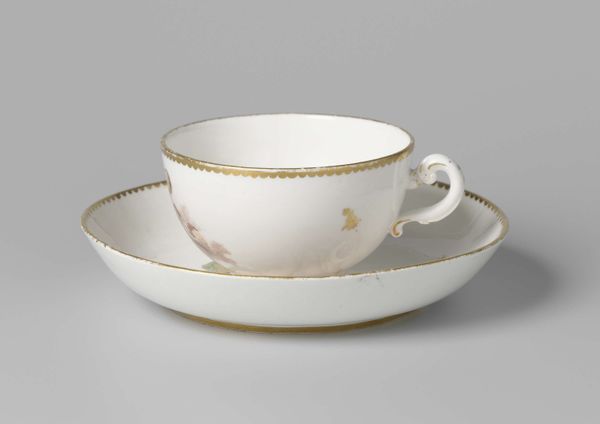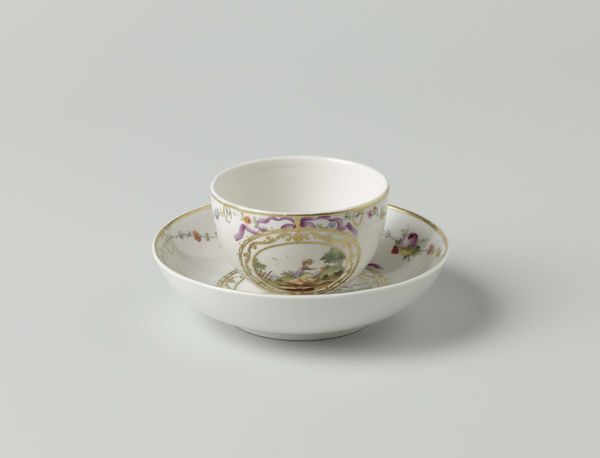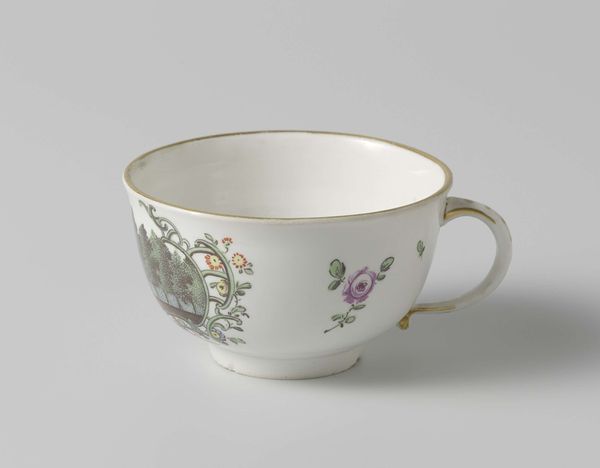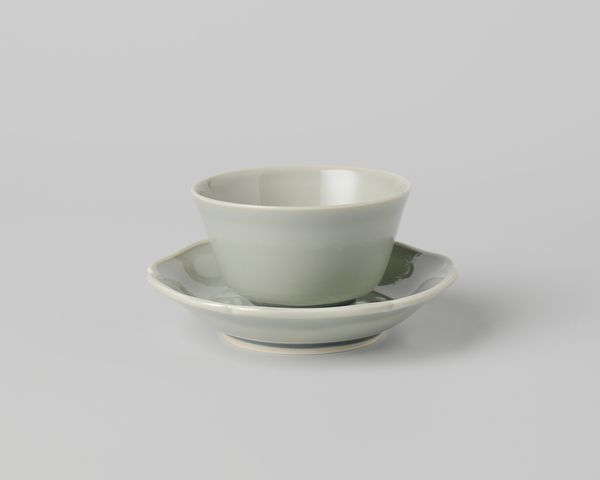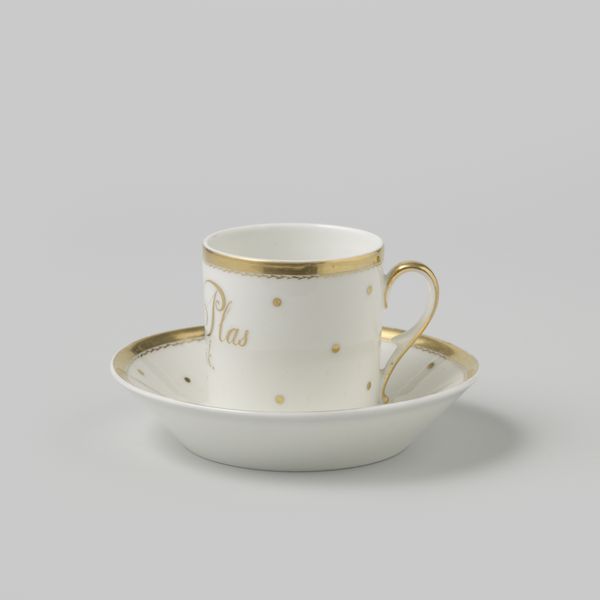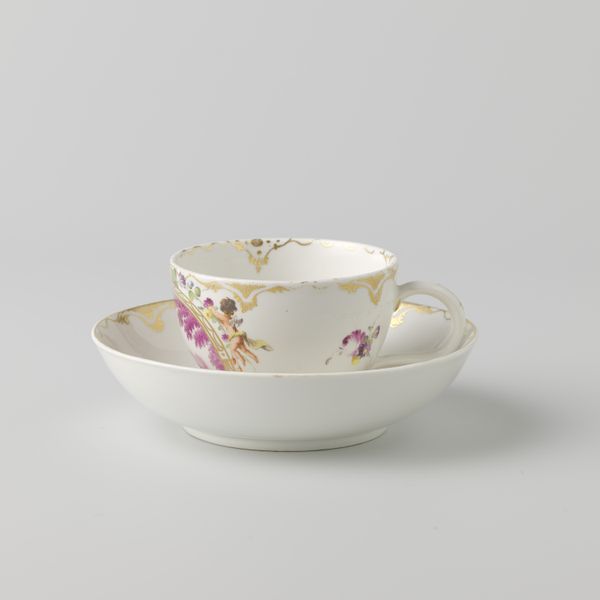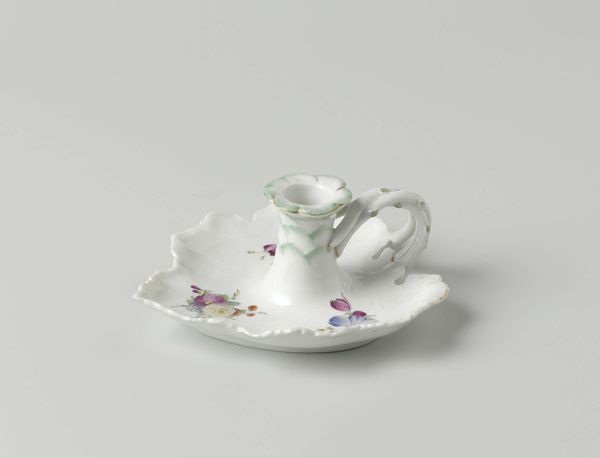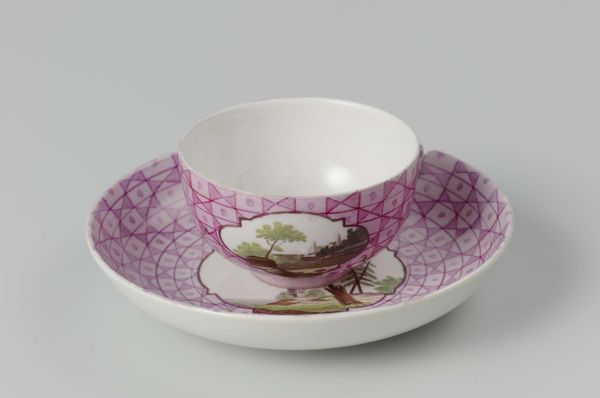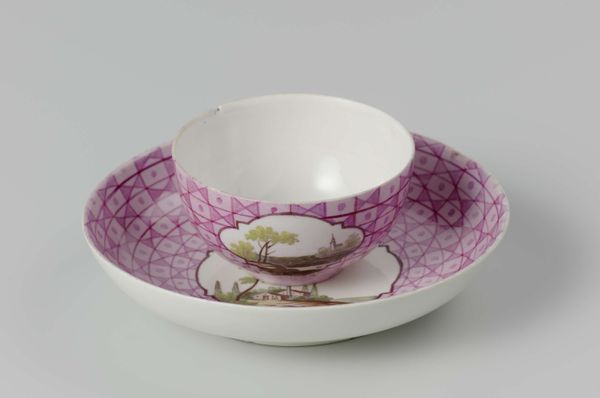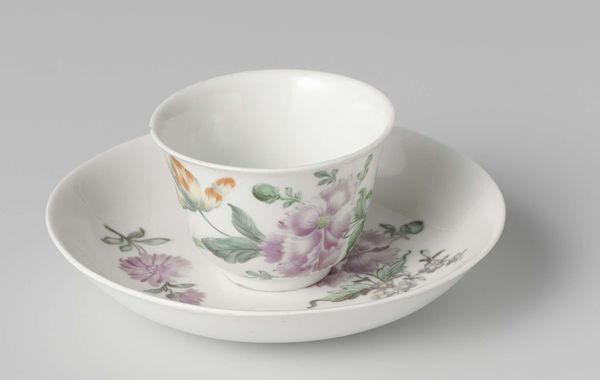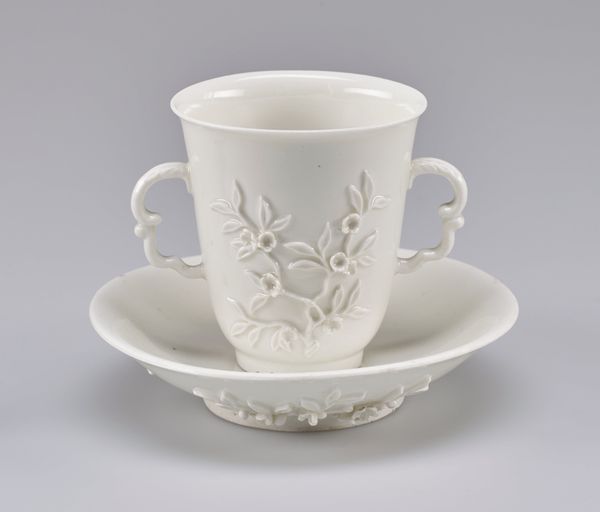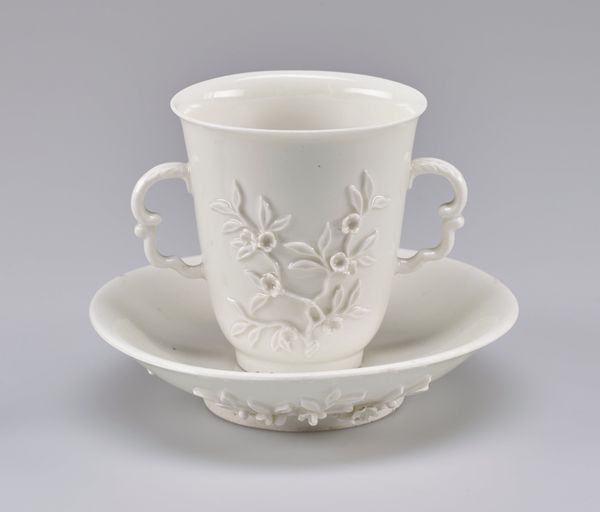
ceramic, porcelain
#
studio photography
#
product studio photography
#
3d printed part
#
product photography advertising
#
product fashion photography
#
ceramic
#
porcelain
#
product design photgrpaphy
#
wash background
#
metallic object render
#
graphic design product photography
#
product photography
#
rococo
Copyright: Rijks Museum: Open Domain
This cup and saucer was made at the Weesper porseleinfabriek, a Dutch porcelain factory. Porcelain is made from a fine white clay called kaolin, which is fired at high temperatures. The cup and saucer were likely cast in molds, and floral motifs were added in relief using a technique called sprigging. Porcelain production was a complex, labor-intensive process. The factory was divided into specialized departments, each with its own workforce. There were potters, mold-makers, decorators, and kiln operators. The work was often repetitive and physically demanding, and the workers were paid low wages. But porcelain was also considered a luxury good, sought after by wealthy consumers. The Weesper factory produced a wide range of wares, from simple cups and saucers to elaborate vases and figurines. These objects were not only functional, but also symbols of status and taste. Understanding the social context in which objects like this were made is essential to understanding their full meaning. By considering the materials, making, and context of production, we can challenge the traditional distinctions between fine art and craft.
